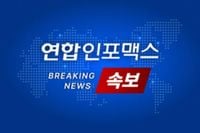On the morning of June 4, 2025, Lee Jae-myung was officially sworn in as the 21st President of South Korea, marking a significant political shift following a turbulent period of impeachment and national division. The moment his election was confirmed at 6:21 AM, Lee's presidential term commenced without the customary transition committee, reflecting the urgency of restoring stability after the early election.
Lee began his first day with a solemn visit to the Seoul National Cemetery, paying respects to those who served the nation, before proceeding to the National Assembly for his inauguration ceremony. This event, attended by key political figures and party representatives, set the tone for a government focused on unity and pragmatic governance.
In his inaugural address, President Lee declared, "Today, I take the first step towards a true democratic republic of South Korea as the 21st President of South Korea, carrying the 52 million hopes and aspirations sent by 52 million citizens." His speech emphasized ending the era of divisive and hateful politics, pledging to become "everyone's President" and to govern responsibly for all citizens, regardless of political allegiance.
He called for an end to "partisan politics and extreme ideological confrontation," stating these should be "sent to the museum of history." Lee promised to employ policies pragmatically, drawing from the legacies of both Park Chung-hee and Kim Dae-jung if necessary, signaling a flexible and results-oriented approach to governance.
One of the most pressing challenges Lee highlighted was addressing the internal strife that has plagued the nation. He vowed to thoroughly investigate past incidents linked to the conservative regime, including the controversial emergency decree documents and the political upheaval surrounding impeachment rallies. "National integration is a measure of competence, and division is a result of incompetence," he asserted, underscoring the administration's commitment to truth and reconciliation.
The election itself saw a remarkable voter turnout of 79.4%, the highest in 28 years, reflecting the public's intense engagement amid political upheaval. Lee secured 49.42% of the vote, defeating Kim Moon-soo of the People Power Party by an 8.27 percentage point margin—one of the largest gaps between first and second place candidates in South Korean presidential history.
Regionally, Lee's support was strongest in the Honam area, where he garnered over 80% of the vote, and the Seoul metropolitan region, while Kim Moon-soo maintained dominance in the Yeongnam region and among older male voters. The generational, gender, and regional divides highlighted the complex social fabric Lee's administration must navigate to achieve national cohesion.
Due to the early election and lack of a transition period, Lee began working from the existing presidential office in Yongsan, Seoul. However, he expressed a strong desire to restore Cheong Wa Dae (the Blue House) as the presidential office to normalize state functions. His team announced plans to relocate there within three to four months, following necessary renovations and security enhancements. Despite concerns over security after the public opening of Cheong Wa Dae, the Democratic Party assured that critical areas such as Yeomin Hall and the National Security Council's underground facilities would remain off-limits to the public, with thorough anti-surveillance measures in place.
Regarding his residence, Lee will temporarily continue living in the presidential residence located in Hannam-dong, Seoul. Although he had reservations during the campaign about using the official residence, practical issues related to security and traffic control make commuting from his private home in Gyeyang, Incheon, unfeasible for now.
Lee's ascent to the presidency marks his third attempt at the nation's highest office. After losing the Democratic Party primary in 2017 to Moon Jae-in and narrowly missing victory in 2022, his win this year was buoyed by a public desire for change, fueled by dissatisfaction with the previous administration and the political crisis that led to the early election.
Following his inauguration, Lee is expected to swiftly begin assembling his cabinet. Kim Min-seok, a seasoned four-term lawmaker known for his strategic acumen within the Democratic Party, is the frontrunner for Prime Minister. Kang Hoon-sik, a three-term lawmaker, is anticipated to be appointed as the presidential chief of staff. However, the absence of a transition period means that for some time, members of the previous government will continue in their roles until new appointments are confirmed by the National Assembly, a process that could take several months.
The transfer of military command authority also took place immediately upon Lee’s inauguration, with the Chairman of the Joint Chiefs of Staff briefing the new president on military readiness and developments concerning North Korea, underscoring the gravity of security responsibilities that await the new administration.
Internationally, Lee is expected to engage promptly with global leaders and diplomatic envoys, following the precedent set by his predecessors. Such early diplomatic outreach is crucial for maintaining South Korea’s strategic partnerships and regional stability.
President Lee’s vision is clear: to open an era of happiness for the people by revitalizing the economy, restoring livelihoods, and fostering a peaceful and stable Korean Peninsula. He emphasized creating "a true community where we overcome hatred and confrontation, respect, coexist, and cooperate to live happily together." His administration faces the daunting task of healing deep societal rifts and steering the nation toward a more inclusive and pragmatic future.
As the nation watches closely, the success of Lee Jae-myung’s presidency will hinge on his ability to unite a fractured society, deliver on promises of economic recovery, and uphold democratic values amid ongoing challenges. The path ahead is complex, but the message is hopeful: a new chapter for South Korea is beginning, one grounded in integration, fairness, and the shared aspirations of its people.

![[속보] 李 대통령 "진정한 민주공화국 대한민국 향한 첫발 내디뎌"](https://thumbor.evrimagaci.org/3DCpJDEvyZCW9gKYBERcZ5_WRBk=/200x0/tpg%2Fsources%2Fe92d3c00-6c36-4600-9182-58ff6fc56c75.jpeg)
